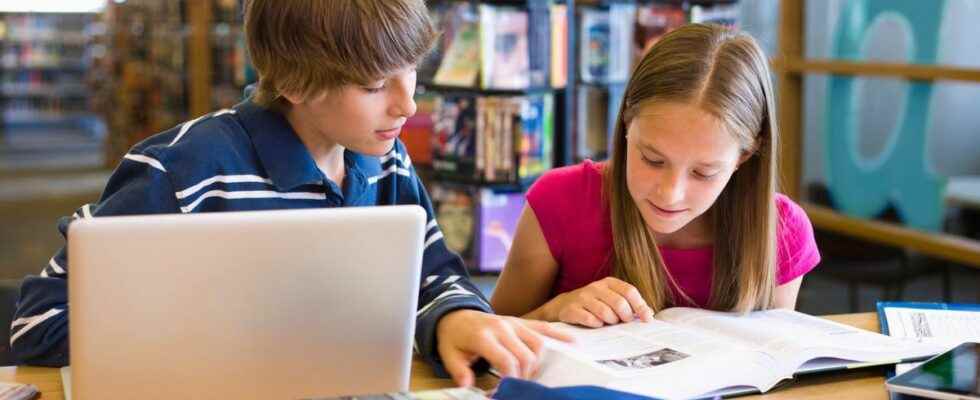Published on
Updated
Reading 4 mins.
in collaboration with
Stéphane Clerget (Child psychiatrist)
According to English experts, children and adolescents would benefit from receiving lessons on what bases a solid relationship in life, in order to counteract the negative models conveyed by Disney and other caricatured visions of love.
A princess who saves herself for a possible suitor, a prince who frees Sleeping Beauty by kissing her… Although mores have changed over time (even in productions), it is not uncommon to still see tales and cartoons convey its share of preconceived, traditional and even toxic ideas. A trend that raises questions even in the educational sciences. In a recent study conducted in England by the University of Exeter, the idea of educating on how to establish strong relationships to counter negative role models and “disneyified” representations is one track that emerges.
Focus groups with young people to find out their expectations about relationships
Based on the observation that in life, relational distress can be associated with public health problems (alcohol, obesity, poor mental health, etc.), experts in “the relationship” led discussion groups with 24 young people from 14 to 18 on what is a good or bad relationship.
Together, they discussed their knowledge of the couple relationship and what they expected from it for their own well-being in the future. A clear demand emerged: the young people who took part in these discussion groups declared that a relational education addressed in class would help them to develop better skills for managing communication and conflict. They would thus like to know more about how to manage the different stages of relationships, how to maintain happy relationships, how to end relationships that cannot be maintained and deal with the consequences in their teenage life.
“People we interviewed highlighted the importance of teaching skills such as relating, communication, empathy, respect, conflict resolution, and repairing and ending relationships with kindness and safety.“says Simon Benham-Clarke, co-author of the study.
Why consider such teaching at school?
Beyond representation in books or films, families do not always bring the right codes either, according to experts: “While young people’s families were seen as the primary source of learning about healthy relationships, there was real interest in the role of schools in enhancing this learning, as not all families exhibit healthy relationships” report the authors.
Professionals even believe that relationship education should start early, preferably in primary schools, exploring what healthy friendships and good relationships with others look like before moving on to romantic relationships, which would give young people vital skills. . Starting early, in primary schools and with psychological support if needed, was seen as particularly important for young people whose parents were locked in conflict.
Is relational education at school relevant?
For child psychiatrist Stéphane Clerget, interviewed by Doctissimo, the idea of a return to relational education at school is not uninteresting:
“This teaching devoted to good behavior towards others is not on the program, but it existed before in the form of morality courses. Of course, he was led on the values of the time, but allowed a teaching on his place with the others. Including in the program daily conduct with the other and in a closer relationship would have its place. However, this should be on the program and prepared in advance, so as not to leave too much room for subjectivity”.
According to him, this would even have a positive impact on fundamental learning: “Cthose who would oppose this kind of learning to a waste of time would be wrong: in languages for example, working on what a toxic relationship is, can help to understand the meaning of a text.
Good in your body, good in your head!
Problematic visions of the couple: also talk about it at home?
Of course, it is not only at school that we can talk about the couple and what makes them a solid and healthy bond. At home too, the child or adolescent can also find reference points with his parents (even if not everyone is a model). In this context, and faced with a representation of the couple that is obsolete or that seems toxic to us, should we give ourselves an explanation each time, for fear that our child projects himself in what he sees? For the child psychiatrist, the important thing is not to enter into a permanent opposition:
“It’s interesting to be on the opposite side to give your version, but it doesn’t have to become an absolute rule. To approach a relationship in what is healthy, what is needed above all is that parents, like schools and the media, show children that today there are a multitude of different models, without judging them or prioritizing them: single parents, mixed couples, homoparental couples, independent women but also classic couples, with a stay-at-home mother who is very happy like this.”
To better guide children in their love and relational life, nothing beats open-mindedness and the diversity of points of view, whether at home or at school.
